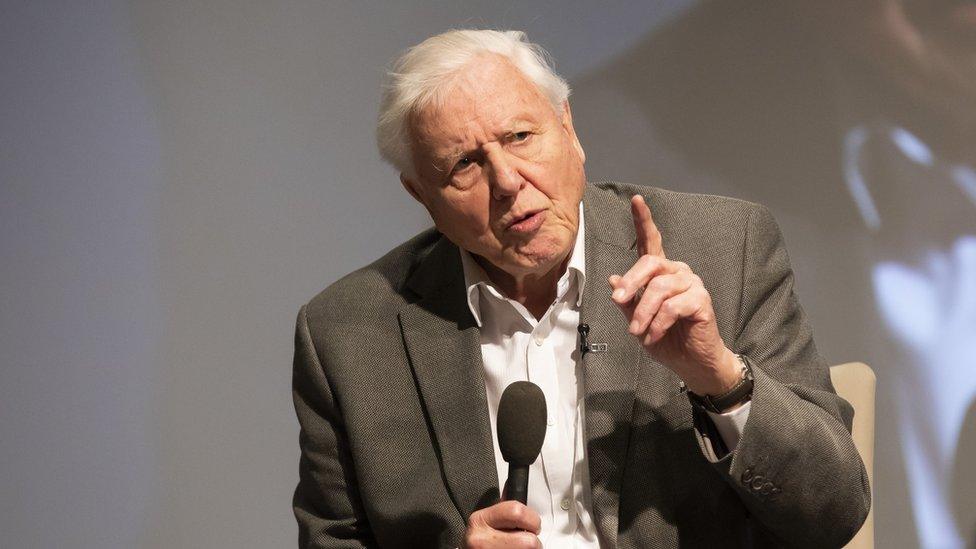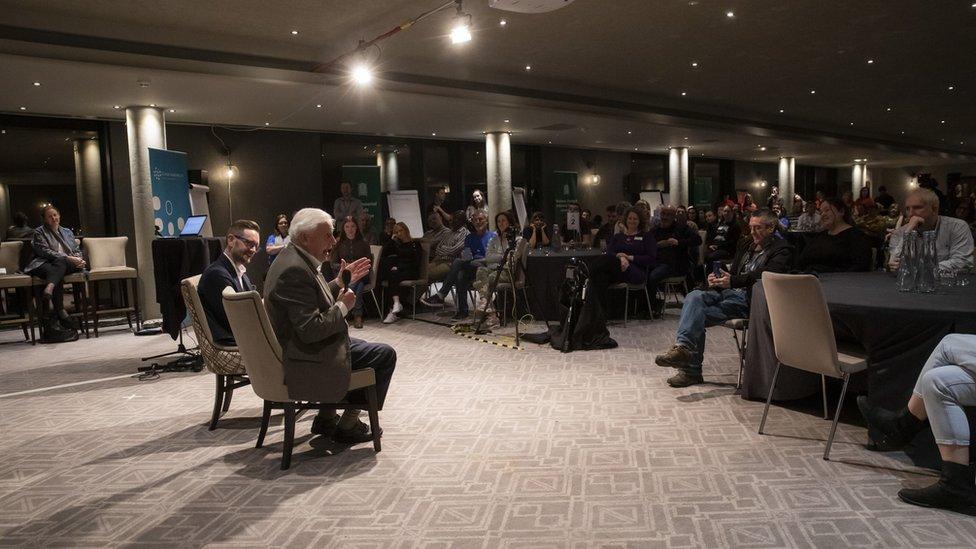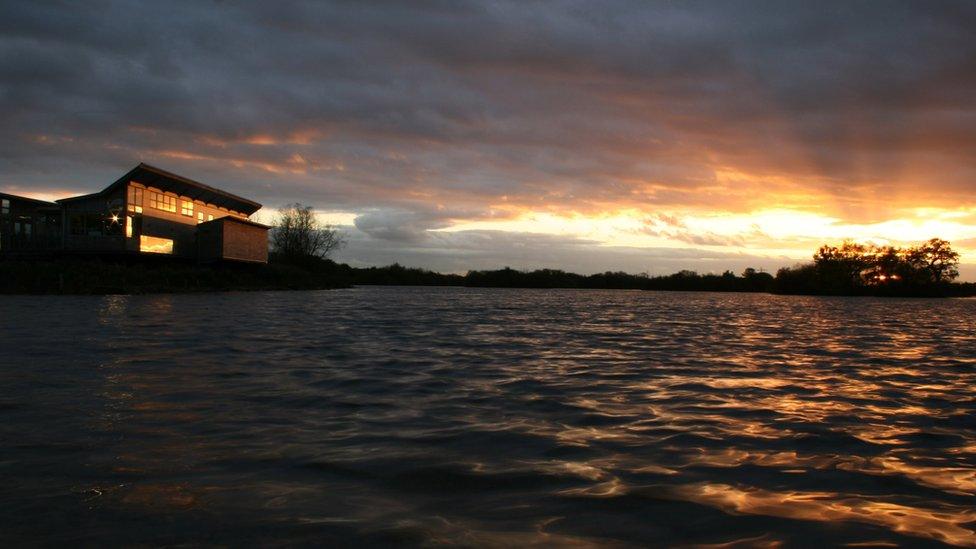Sir David Attenborough says fixed-term parliaments lead to lack of climate focus
- Published

The UK's fixed-term parliaments could see politicians failing to prioritise climate change, veteran naturalist Sir David Attenborough has suggested.
He told the first citizens' assembly on climate having a five-year government leads to a lack of long-term planning.
The 110-strong assembly in Birmingham will meet over four weekends to examine options for how the UK can meet its greenhouse gas emission targets.
Sir David said he was "extremely grateful" to those taking part.
It is hoped their recommendations - to be published in April - will help inform Parliament and the government on policies to reach net zero emissions.
Sir David said one of the problems with Parliament having a fixed length of five years is that the effects of climate change may only be felt much later.
"It is very difficult to persuade politicians that they should give money and time and attention and worry about an issue which is not going to come to a climax - and people won't know if it is successful or not successful - for 10 years hence, 15 years hence," he said.
He told the group: "So the fact you are here is extremely important because it shows you can put pressure on your members of Parliament to take this issue seriously."
"I believe that the question we are facing is of the utmost importance," he added.
The Fixed-term Parliaments Act 2011 requires an election be held every five years, unless two-thirds of MPs vote for an early poll.

What is the citizens' assembly?
The citizens' assembly, commissioned by six parliamentary select committees, is being asked to examine how the UK meets its legal target to cut greenhouse gases to zero overall by 2050.
The 110 members of the assembly will learn from experts about climate change, and discuss and make informed decisions on options for meeting the net zero goal during sessions in Birmingham.

The 'ordinary' people among the UK's first citizens' assembly

Their differences are crucial - they've been chosen to reflect the nation in diversity of age, ethnicity, geography and opinion.
Among them are people who are unworried by climate change - as well as others who are positively alarmed.
You might have thought a climate conference like this would be a meat-free zone, given the impact of cows on the planet.
But this aims to be an extraordinary gathering of "ordinary" people.
That means chicken and sweet potatoes on the lunch menu, as well as the beef - and a vegan option. And no preaching.
Chris, an engineer from Oxford, says he's not yet convinced climate change is an emergency - he says he wants more facts.
Leia from Darlington, who just lost her job as an engineering apprentice, doesn't need convincing - she doesn't want to be left with a badly-damaged planet.

They have been drawn from more than 1,800 people who responded to 30,000 invitations sent out to UK households selected at random and are representative of the UK population in age, gender, ethnicity, education and where they live.
Members are also representative of the country in terms of how concerned they are about climate change.
Three of the group said they were not at all concerned, 16 not very concerned, 36 fairly concerned, 54 very concerned, and one did not know, organisers said.
Business, trade union, faith, farming and environmental leaders have given their backing to the citizens' assembly.
The £520,000 scheme has been funded through £120,000 from Parliament's select committees' research budgets and two philanthropic foundations.
- Published17 January 2020

- Published16 January 2020

- Published19 December 2019

- Published25 November 2019
